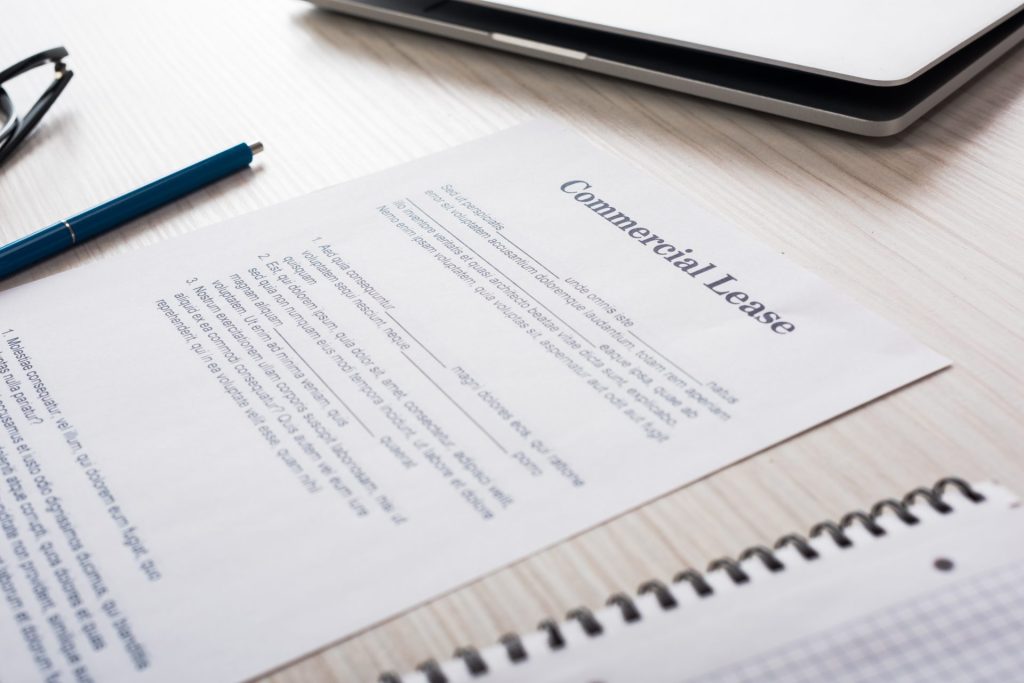10 Clauses to Include in Your Commercial Lease Agreements
Georgia is known as a top business state due to its large talent pools, diversity, solid infrastructure, and numerous other factors. Whether you want to set up shop in the Peach State or have commercial real estate available to lease to those who do, the ins and outs of commercial leases are important to consider.
A business law attorney can help you create strong commercial leases that protect your interests and include some must-have clauses, such as those highlighted in the list below.
1. Rent Payment Clause
This clause should spell out everything tenants must know about their rent payments, including how much rent is and what payment methods you accept. If you accept checks, that typically includes the address they should be mailed to.
Include due dates for rent payment and what you expect if rent is not paid on time, such as additional charges in the form of late fees. You may also want to include NSF (non-sufficient funds) charges that might apply if a rent payment is returned by the business’s bank.
2. Rent Escalation Clause
A rent escalation clause defines how rent amounts might increase. You might specify a specific fixed increase, such as a certain percentage per year. Other options include clauses that allow rent to be adjusted alongside a specific financial index or in keeping with any increases in property owner expenses, such as taxes or insurance premiums.
3. Term Clause
The term clause dictates the length of the lease. This is the length of time the tenant can expect to be able to inhabit the space and the length of time they are responsible for covering rent—whether or not their business is successful. A term clause can help you create stability as a property owner, as it helps ensure you have a specific income from a commercial lease.
4. Description of Premises Clause
The description of premises clause does exactly what it sounds like: it describes the premises being leased. This clause might simply state that the entire premises at a certain address, including the parking lot and all buildings on the property, are being leased. However, it’s not always that straightforward.
In many cases, commercial leases involve shared space of some type. For instance, the owner of a large office building might lease office space to a variety of tenants. Those businesses have certain rights within their individual spaces, but it’s important for them to know their rights and obligations regarding shared spaces. It’s also essential to describe shared or common spaces, such as reception and waiting areas, parking lots, lobbies, or hallways, and what activities are allowed in those spaces.
5. Use and Occupancy Clauses
These clauses detail what type of businesses can occupy certain spaces and what activities are allowed within the space. For example, if you rent office space, you likely don’t want someone trying to operate a restaurant in one of the suites. Or, if you have an industrial property zoned for manufacturing, it may not be in your interest to lease it to someone who wants to open up a retail shop.
6. Maintenance and Repair Clauses
Clauses that detail maintenance and repair processes relevant to the property are important. They include information about what the property owner will be responsible for and what tenants are responsible for. You might also include information about how tenants can report issues.
7. Subleasing and Assignment Clause
This clause defines whether tenants have an option to sublet the space or assign the lease. If you are willing to allow such arrangements, the clause should also spell out expectations about subleasing and assignments.
8. Insurance and Indemnification Clauses
These clauses help protect the interests of the property owner and the business leasing the space. For instance, you might want to require that a business leasing your space carry certain types of insurance, including property or liability coverage. You can also use these clauses to define the insurance you will carry so that leasing businesses know what gaps they may need to fill with their insurance coverage.
Indemnification clauses involve asking the tenant to agree not to hold you liable for certain incidents or damages should they occur on the property. For instance, you may want to seek indemnification from any liability issues that arise solely related to the tenant’s business processes and not the property itself.
9. Termination Clauses
Termination clauses spell out how you or the tenant business can terminate the lease early. You might want to include a list of reasons you might terminate the lease early, including breach of contract by the other party. It can be helpful in some cases to include penalties, such as a buy-out clause, for tenants that break their lease when you have held up your end of the contract.
10. Renewal Clause
A renewal clause specifies how a lease might be renewed. You can include an option for automatic renewal if one or more of the parties to the lease doesn’t notify the other in writing within a certain period of time—for instance, within 90 days of the lease ending.
Work With an Experienced Business Law Team
Shore up your commercial leases and other contracts by working with an experienced business law team. Contact InPrime Legal today at 770-282-8967 for help with your lease agreements.




